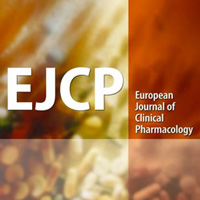Background and aim :
The ARCTIC study randomized 2440 patients scheduled for stent implantation to a strategy of platelet function monitoring with drug adjustment in patients who had a poor response to antiplatelet therapy or to a conventional strategy without monitoring and drug adjustment. No significant improvement in clinical outcomes with platelet function monitoring was observed. The purpose of this study is to assess the relationships between CYP2C19 genotypes, clopidogrel pharmacodynamic response, and clinical outcome.
Methods :
In the ARCTIC-GENE study, 1394 patients were genotyped for loss- and gain-of-function CYP2C19 alleles. Randomization of treatment strategy was well balanced.
Results :
Slow metabolizers identified as carriers of at least one loss-of-function allele CYP2C19*2 (n = 459) were more likely poor responders at randomization (41.6 vs. 31.6%, p = 0.0112) and 14 days later (23.8 vs. 10.4%, p < 0.0001) and more frequently on prasugrel (11.5 vs. 8.1%, p = 0.039) as compared with rapid metabolizers (n = 935). Intensification of antiplatelet treatment did not differ between slow and rapid metabolizers according to the study algorithm based on platelet function only. The primary study outcome defined as the composite of death, myocardial infarction, stent thrombosis, stroke, or urgent revascularization 1 year after stent implantation did not differ between slow and rapid metabolizers (HR 0.988, 95% CI [0.812;1.202], p = 0.90). Likewise, the primary safety outcome did not differ between rapid and slow metabolizer phenotype.
Conclusion :
The genetic clopidogrel profile was a good marker of platelet function response on clopidogrel but was not related to clinical outcome suggesting that the genetic added little to the pharmacodynamic information used in the study to adjust antiplatelet therapy.






